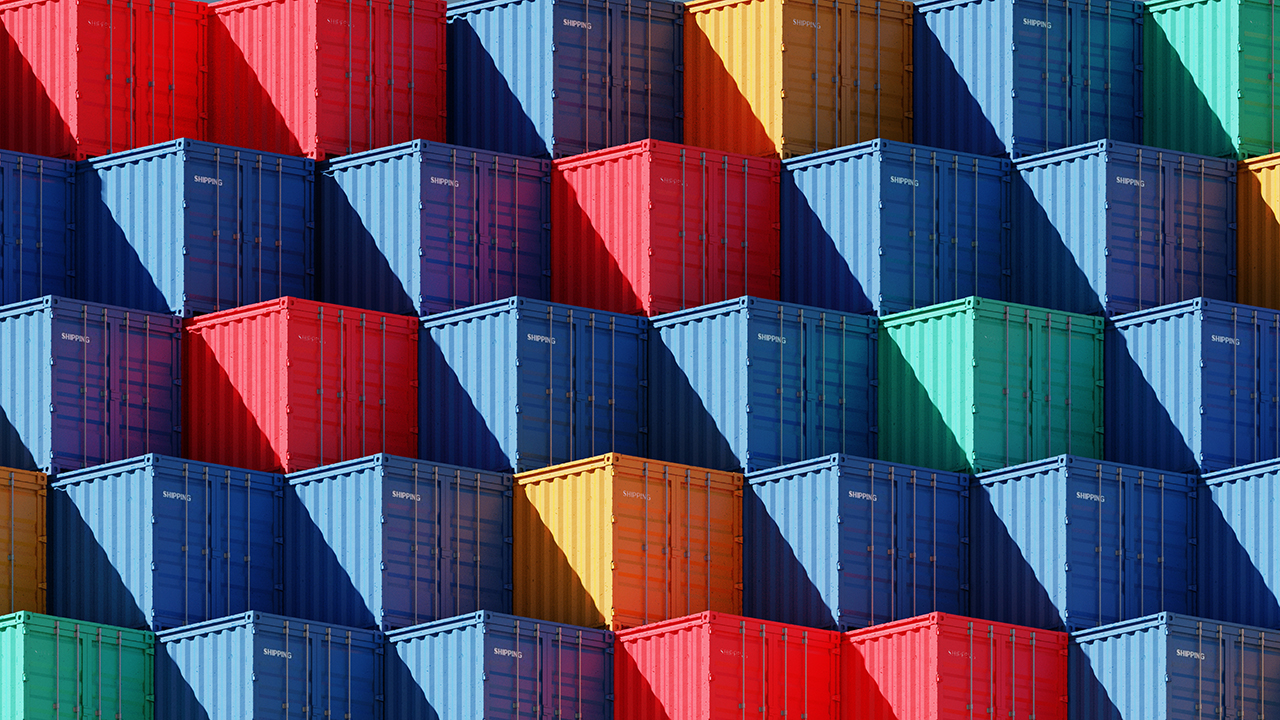Using Artificial Intelligence (AI) on ASTM standards and related intellectual property is prohibited. Violations will result in suspension of access.

By Rylee Kelly
Aug 15, 2025
Without realizing it, your everyday life is impacted by the global supply chain ecosystem. From the infamous toilet-paper shortage during COVID to the current tariff push, the supply chain can affect you on a personal level.
In the latest episode of ASTM International’s “Standards Impact” podcast, host Dave Walsh, editor-in-chief of Standardization News, speaks to three well-known supply chain experts: Jeff Weiss, a partner at Steptoe, LLP; Michael Darden, CEO, and founder of DFM Data Corp.; and Michael Coner, founder of Blockticity, all members of ASTM’s digital information in the supply chain committee (F49). They discuss the complexities of the supply chain, from tariffs to sustainability practices, to logistics, and what the supply chain of the future might look like.
EXCERPT
Dave Walsh: We've talked about some of these issues, and I think you just identified another one, which is collaboration and different stakeholders working together. But looking forward, let's look ahead to the future. Now we've identified the issues faced today. Where do each of you see the state of global supply chains 10, 20 years from now? Will the problems you're discussing today be solved and will there be new problems to solve? Is there something obvious on the horizon that's coming and most importantly, how will standards help to solve those problems?
Mike Coner: So, I think in the next 15 to 20 years, the entire global supply chain is going to go from paper to digital. And that means that a farmer with limited internet access using simply a smartphone device and a WhatsApp app on their phone is going to be able to authenticate and certify their coffee beans in any mountain in the world and or a minor mining critical minerals anywhere in the world. And it'll start there, and it will be traced genealogically through the supply chain. And that is something that I'm very excited about, but that is a very scary prospect for folks that are not tech savvy. So, as that evolves, I think that the model that we are working on right now is going to make it easier. And I think that trade associations are a big part of making this a reality, but I believe there is a global initiative to go paperless. And when that happens, then we will have traceability and it'll be not only consumer goods or medication, but you'll be able to get mozzarella from Italy, if that's something that you want to serve your family, you'll be able to trace genealogically every product that we put on our tables in front of our families. And I think that's something that I really look forward to.
Jeff Weiss: I think consumers are going to want to be able to essentially scan their products at the market and know the complete history of the product. And that's something that we can potentially help make available by standardizing how that information is gathered and authenticated and validated. I think this is going to be something that is not a nice-to-have, but a must-have, not just because consumers want it, but because governments are going to require it for a variety of different reasons. And it's really important that we get this right because if you have a system that is leaky, it could potentially raise health and safety issues, environmental issues, and it's going to have a commercial impact because you're going to have non-compliant product, which is probably going to be cheaper. Getting into markets and displacing compliant product where the producers and the other supply chain actors have taken the steps necessary to make sure that there's compliance. And just one example is coffee. So, there's certain supply chains where it is possible to do a test and figure out where something comes from a physical test, but a lot of cases you have products that are blended or commingled as part of the process. And coffee is one of those things where chances are the beans are being blended from a variety of different locations. And so if there are tariff issues, if there are deforestation free claims, how do you actually figure that out so that when you're at the grocery store and you're trying to figure those things out for yourself, or if you're a retailer and you want to sell it, how do you know what's going on? And I think the tools that we're developing are going to be incredibly helpful for creating a low-cost consistent way of making sure that those claims can be trusted in the supermarket of 10, 15, 20 years from now.